Mardee Billingsley - The Global Building Envelope - PODCAST TRANSCRIPT
May 9, 2025 at 5:00 p.m.Editor's note: The following is the transcript of a live interview with Mardee Billingsley, executive vice president of Tremco Construction Products Group. You can read the interview below or listen to the podcast.
Intro: Welcome to Roofing Road Trips, the podcast that takes you on a thrilling journey across the world of roofing. From fascinating interviews with roofing experts to on-the-road adventures, we'll uncover the stories, innovations and challenges that shape the rooftops over our heads. So fasten your seat belts and join us as we embark on this exciting roofing road trip.
Heidi Ellsworth: Hello and welcome to another Roofing Road Trips from Roofers Coffee Shop. My name is Heidi Ellsworth and we have a very special road trip today. This road trip isn't just in the US. This is a global road trip where we're going to find out what's happening around the globe from the expert in international business and what's happening in the roofing industry globally. And that is Mardee Billingsley with Tremco. Mardee, welcome to Roofing Road Trips.
Mardee Billingsley: Thank you, Heidi.
Heidi Ellsworth: Are you ready to go around the world?
Mardee Billingsley: I am. I don't know if I'd call myself an entire expert, but I'm ready.
Heidi Ellsworth: Well, I tell you what, you are definitely one of the top experts I know because I don't know anyone who puts in quite as few miles as you do traveling all around. So let's start first with some introductions. So if you could introduce yourself and tell us about your career, about Tremco, just give us a full story.
Mardee Billingsley: All right. I have been with Tremco just over 28 years. It's hard to believe I've been doing roofing for that long. I think you know I didn't start out in roofing and I actually went to school to be a teacher and after doing that shortly was not really my calling and went to work for a warehouse and paper company in the Pacific Northwest. And it was through that organization, their manufacturing department, that I found roofing. And we had a relationship with Tremco as our corporate vendor throughout the country. So I then took a position with Tremco supporting that account and lo and behold, here we are. I've done a lot of construction management in our service division, running our service division WTI. I did a lot of the on-road rooftop construction management and then I've been expanding into our international markets for the last four or five years.
Heidi Ellsworth: Yeah. And right now you're executive Vice president of Tremco Construction Products Group, right?
Mardee Billingsley: I am.
Heidi Ellsworth: That is so amazing and so cool because I remember when we first met you were running WTI and have done, I mean, just put it on the map that so much has happened since you and I met. And now to see you taking so much of that energy and excitement that you infused into WTI globally has been really fun to watch. And I'm excited that we get to talk about it today a little bit.
Mardee Billingsley: I think I'm very fortunate, Heidi, to have grown up in roofing really from an infancy where we didn't really have a service business and I got to learn everything from the ground up as we built it, which I don't think everybody gets the opportunity to do. So I learned a lot as we went and it got bigger and bigger and we went from nearly nothing to half a billion dollars in just services and almost a billion dollars in roofing. So I'm definitely very lucky to have grown up in it and really learned it from an infancy stage, which a lot of people don't get to do. So there's a lot to know and a lot to understand and I feel like I got to do it in a place that I'm very fortunate.
Heidi Ellsworth: Yeah, it's so amazing. Okay, so a lot of people know Tremco Roofing, they're very familiar with Tremco Roofing, but we are now using terminology of Tremco Construction Products Group. Can you explain what Tremco Construction Products Group is and how Tremco Roofing fits into that?
Mardee Billingsley: Sure. Construction Products Group is really the platform and the actual entity that Tremco Roofing belongs to. So Tremco Roofing is a division of Tremco Construction Products, which is our overall platform that provides sealants, waterproofing, roofing, concrete masonry products. So within Tremco Construction Products Group, which we'll just call CPG because it's too much to say, is roofing, our sealants and waterproofing division, WTI or Service Division and Euclid Chemical. So each of those things operate independently and operate in multiple different countries themselves. Tremco Construction Products operates in North America as well as Europe. And then Tremco CPG is an operating group for RPM International who is a $7 billion global company that specializes in specialty coating, sealants, building materials and related services.
Heidi Ellsworth: Wow. I don't think a lot of people know about that. So as you're listening to this, you need to check out the directories on Roofers Coffee Shop and we have CPG on there, obviously Tremco Roofing, WTI. You can kind of see how the whole thing fits together into this amazing umbrella company of RPM. So let's get into the international stuff because I'm really excited about that. So I just want to know, in your travels and as you've been going along, how are things different from the US? There'd be a lot of people who would say, well, a roof is a roof, but there's a lot of differences around in several countries. So if you could share with us a little bit what you've seen in differences and in some of the different countries you've been into.
Mardee Billingsley: Yeah, I think there's always a preconceived notion, especially if you've been doing roofing in North America. I think we always think we know what we're doing, we're the best at it. But to be honest, I think we had a lot of preconceived notions of the different countries, we've been working to expand our roofing into Europe, Asia Pacific, Latin America, India, South Africa and the Middle East. So you can see all the different cultures and honestly, the downtime that we had in Covid, I think we started out very fast. And then the downtime we had during Covid kind of gave us the opportunity to really listen to each country and culture and figure out how to develop solutions them. I don't know if it's necessarily the roofing that's different, it's the cultures and the environments. So we meet with our regional teams weekly or monthly and it's really not about roofing.
It's of course languages is the biggest barrier. And then financial and regulatory distinctions are all things that play into it. The environment, if you get into areas like South Africa where it's on the coast and it's very salt water heavy and you get that corrosion in the air. You think of a typical acrylic metal coating, it just won't endure that salt water environment that exists in South Africa. And those roofs require a much more corrosive resistant coating, which happens to be available through one of our other RPM partners, which provides South Africa the roofing solution they need for metal roofing.
However, they still use some of our other fluid roofs, just depends on the solution that they need, but we really have to listen to what they're saying and as they go through all those things, really come up with the things to do. I think we're embedded into those regions, right, with operating businesses and local employees. So we're not just about the product sales, we're really about that philosophy of keeping good roofs good and the solutions and providing the best solution to meet the customer's needs for longevity, financial investment, the technical requirements. So our model's never really been a straight commodity sale, which may be why it took us little longer to get into each of these regions. It's really about long-term solutions. We don't just want to sell a bucket or a pail. We're trying to sell a long-term solution for long-term customers.
Heidi Ellsworth: That makes total sense. And every place is going to be different, when you talk about the environment, the climate, everything that goes around there. But I would love to als, I'd like to bring it in a little bit to the UK and the EU, Europe. I know you've been spending tons of time there. And can you tell us some of the differences in the roofings, particularly what's some of the differences in the roofing systems or different types of customers when you compare the US to the UK or the EU?
Mardee Billingsley: Sure. I think when you look at, I find the roof systems in Europe to be, I don't know, simpler. You look at our FM requirements that we have to accommodate for all regions of the country and the US and you go through FM availability of products and systems and there's thousands and thousands and you go to the UK. And I remember when I first started going over there in 2004 and I remember going up on a roofing project and it's a base and a cap. And by the way, it was the most beautiful base and cap you ever saw put down, went down with such precision and such art and just such a clean methodology that to this day, their number one bitumen system is a base and a cap.
And it's a 20, 30 year roof system, right? A 30 year durability, 20, 25 year warranties, things that in the states just probably wouldn't endure or hold up to that. And the types of environments we have, especially in the UK, it's much milder climate kind of even. Rains a lot, feel like it's our Pacific Northwest friends, you know I'm from up there. So that constant rain, I wish it wouldn't rain so much. And then they have a big fluid market, so a lot of PUMAs because of the weather and having to get systems down and cured up faster. Anything they can do to just go and be installed by the end of the day, it's really their motive. That's really how they have to go to work.
Heidi Ellsworth: That makes sense. That makes total sense because both of us, I'm from the Pacific Northwest too and you learn how to work with that weather. But how does some of the customers differ? Because I'm interested if there's even a difference.
Mardee Billingsley: Oh yeah. I think there's a lot of differences. If you look at the UK, everything is controlled by the government in some manner. They control their healthcare and they control their benefits and they control, they really control everything, including the school systems, which so do ours. But I'll try to explain the differences in the school systems, which is quite a bit to get your head around. But you look at the UK, it's about 95,000 square miles, which is about the size of Michigan. So that's all the difference that we're talking about in space. But there's about 1700 what we would call school districts in the UK compared to Michigan, there's 539, so it's a huge, almost three times as many or a little over three times as many. And then when you get into the schools and if you get into US school district, you got a facility director really that manages all the school in the district and all the rooftops.
So you're talking one stakeholder you get to work with, maybe you're looking at local, a high school custodian or somebody who's working that roof every day, but you're really talking roof replacements and restorations with the facility director. But when you get to UK, the schools are managed by the local government councils, they're managed by multi academy trusts. They themselves manage independent things themselves. There's like 22,000 stakeholders in the UK versus the 500 that are in Michigan. So it's such a huge... You're trying to decide and there's different stakeholders for everything you do, maintenance, replacements, repairs, they're all different stakeholders and it's very difficult to get your hands around it. On top of that, there are generally specifiers, which we would refer architects that are involved in every single replacement, refurbishment is a restoration project that goes on. So you got 22,000 stakeholders that just manage the school work plus all the specifiers that participate in that work.
It's a massive amount. And when you look at the number of schools in the UK in that area, about a little over 32,000 compared to 3,000 in Michigan. And 9 million students versus a little over a million in Michigan, they're so condensed on top of each other. And it's so many more smaller schools than it is really large school districts. So it's very complex and it's a lot to maneuver through and figure out who's doing what and when do they have money, how do they get government funding. Really, how do you go about these multi academy trusts are really trying to privately fund some of their school work and be able to support schools in a long-term manner versus just waiting for government funding, which clearly is difficult to get when you're talking 32,000 schools in a same square miles that you're trying to produce for something for the size of Michigan.
Heidi Ellsworth: Yeah. So you mentioned early on about you have full-time employees working there and just looking at the differences that you're describing in the school districts is huge. I know there's also social differences. So how important is it and what effect does it have to have local people, I know it seems like a kind of crazy question because I'm thinking it's really important, to have those local employees there who are helping to guide you through all this.
Mardee Billingsley: So we used to have an entire UK's roofing division about 10 years ago and some manufacturing there, which we shut down maybe about 10 years ago. And now we're rebuilding all of that from scratch, really. And new manufacturing efforts are being put in. We put in some new equipment. So there's a lot of that effort that needs to be done locally. I think surprisingly and again, it's what I grew up with in roofing, but that commonality of every school district here goes out to a school bond. Everybody knows they get a bond because that's all of our own taxpayer money. So you know what the schools use the money for what they're asking for. That's not as common in the UK. So the individual employees we have, they know about as much about it as we do and they're learning as we go too trying to navigate all that.
I think when it gets into governmental things that it becomes very complicated and they run it at such a high government level. But even some of our local employees really don't know and they're learning as they get into it too, especially all the new sales reps we have. So when you're hiring new employees and new sales reps into roofing, they're learning both technically and how to navigate procurement, which is, in my opinion, half the battle, if not more. How they're going to buy a roof is just as important as the type of roof they're going to buy. It's the same as it's here in the states.
And the UK itself has and actually all of Europe has very large emphasis on social values. They use construction projects, especially new construction, but all roofing projects as well, they use projects to foster social values and responsibilities locally. So if I'm going to do a project, I'm just going to pick London because everybody knows London. If I'm going to do a project in the City of London on a library, the prime contractor is going to be required to produce some certain percentage of the project in what they call social values, social responsibility.
So they either have to fund a local food bank, they have to provide a sponsorship for a local kids rugby team, anything like that, both themselves. And then any subcontractors that do the roofing all have to participate in that, which is a huge effort in the UK where we are having to figure out how to fit into that social responsibility. And really up our game for that and figure out programs and how to participate in that. And really, you know, us, we want to be a leader in that. I don't want to be... The manufacturers are kind of left off to the side and that's not really who we are. We want to be face forward on that. We want to be able to support that as much as possible and figure out how do we as manufacturers support those efforts as well, not just the contractors.
Heidi Ellsworth: Yeah, man, I love that. It is, it's kind of like a puzzle, but so many good things to be involved with. Mardee, I'm just curious, what has been the most difficult barrier for you?
Mardee Billingsley: Well, I think that, well, the easiest answer and probably the most accurate has been the language barriers. So the language barriers, even though a lot of our employees that work in all these countries, especially Asia Pacific, Latin America, speak English because they report to a North American company, maybe not as well as we'd want them to and certainly not as well as we need to. And I wish AI was better at really translating real life time, but it's not quite there yet. But I think the biggest language barrier that I've really encountered has been the UK itself. Being able to speak English and think that you're speaking English when really it's the Queen's English, it's not your traditional language. And there's a lot of slang that we don't understand and a lot of words we use that they interpret completely different. And therefore and I say that respectfully, clearly, they came first.
So it's that we changed our language to fit ourselves. But I think that you realize during strategy sessions or updates and debriefs that when we leave, our teams both in the US and the UK, are actually going in different paths. And when you come back together, you're trying to figure out why they're off on one path and we're off on a different one. But it's really because when you go back, the language and the words that we use don't mean the same things for them. So I'm constantly asking myself, what does that mean to you? Do you understand what I'm saying? I don't understand what you're saying. I can tell you that I use Google. And the question of what does this mean in the UK is a daily exercise for me on every call. I'm constantly in the background going, "Oh, okay, that's what that means."
But I'll leave you with, just in the last few months, I've learned slagging, which is a slang word for talking poorly about each other like when we have our field teams that are having problems and then a fortnight, which is not a song or a video game and you can look that up, I'll just leave that for the listeners to go look up what a fortnight means. And I'm just constantly having to check myself in conversations and interrupting them with, "What?" And yes, I feel a bit stupid, but I learned it took too long to figure out that we don't say the same things together and that it's a lot better if we just clarify it and all get to the same outcome before we leave the call.
Heidi Ellsworth: Right. Well, I've worked with a number of folks from the UK and Europe and having been involved with the young roofers and all of that and I've also found that sometimes it's speed. It's just like how fast they talk and I'm like, "Okay, wait a minute. I'll slow down. You slow down. We can hopefully understand each other just a little bit better." So yeah, we're all fast talkers,
Mardee Billingsley: And I think we are fast talkers, right? I'm a fast talker, you're a fast talker. But their meaning of a fast talker and I love our marketing manager, Keely and you know her as well as I do and she talks faster than anybody. I'm constantly, I'm saying, "Okay, slow down, let's start over again. You lost me at the first sentence, so." And especially with their accents and in the UK there's hundreds of accents. So A, I'm trying to keep up with the speed and B, I'm trying to decipher all the accents. And again, thinking that it's English is really a mistake on our part.
Heidi Ellsworth: I love that. I love that. So, okay, let's talk a little bit about another area that I think has its own challenges and it's more just about educational learning, but that is going to be understanding codes and regulations and really understanding testing and compliance as a manufacturer and how that all goes together. Can you kind of talk about that a little bit on just when it comes to sourcing, manufacturing, all the things that go along with that, testing that then feeds into codes and regulations?
Mardee Billingsley: Yeah, sure. I think that all of our expansion to each of these regions starts with exports, right? It's clearly not reasonable though, to just ship worldwide. It doesn't provide us the opportunity to give customer solutions responsibly. But I think each and each region has a bit of different requirements. Surprisingly, Asia Pacific and India and the Middle East, depending on who's doing the projects, have a lot of ULFM requirements. A lot of the specifiers come from the states. A lot of US expansion into those regions drive a lot of the specifications. So those are relatively easy for us and we can export products because they're not made there locally for that type of roofing. But the downfall of that is exports can take months to arrive and sometimes even for a place like Brazil, Argentina that you feel like a ship could get there in a couple weeks, it can sit there in a port.
Like we had a ship sitting outside of Brazil in the port for almost a month. And so you take that into account, it took six weeks to get there, another month to sit in port, just takes too long. So we've expanded our manufacturing in Europe, Asia-Pacific and Latin America and South Africa. So these options then give regional support. We can build the codes in the UK instead of FM and UL, right? There are BVA and fire testing regulations, high degree of fired testing regulation in the UK about everything that you do due to a disaster they had a few years ago. And so they've revamped all of their fire coding and everybody's had to adapt to that. And so all of the testing is done there locally and all the manufacturing's done locally. And similar to FM or UL where if you change the manufacturing or you change your raw materials, you still have to have that all tested.
But places like Asia-Pacific, Latin America, we're doing a lot more South Africa, a lot more fluid. It's easier to manufacture the fluids in those areas than it would be to put in a felt machine. Those are certainly not as easy to build or put into. But I think there's a heavy focus for us in fluids and liquids and coatings and those areas support those very highly. So we're developing what we need to be responsive. We continue to do whatever we do manufacture outside of the country is really tested and QC tested and approved in line with what we do here in North America. We would test all the products here just to make sure that they meet the same requirements that we have. So we don't have a difference in if you buy Tremco's Illumination 301, what you get in South Africa and Latin America and the US are all going to be the same products.
Heidi Ellsworth: And that takes a lot of work and coordination.
Mardee Billingsley: Yes, it does. I agree with that. And just sourcing all the raw materials because this clearly can't source all the raw materials from the same places we do. So making sure we get the right blend of that and the tests all come out to be the same is definitely takes an effort and a couple tries.
Heidi Ellsworth: Yeah. And things are constantly changing. So there's a lot that has to be thinking about every part of the country, there's just so many things that are changing from weather to politics to everything. So yeah.
Mardee Billingsley: Yes.
Heidi Ellsworth: Yes, it is every day.
Mardee Billingsley: And I think the other thing, Heidi, is that I think one good thing that Covid taught us is that the raw materials that are going into all these products, they're also changing more than we thought they were. And all the raw materials we got globally are changing on a regular basis. So there's I think a lot more focus on where does everything come from and where will it go and how does it blend together? And I'm not sure, We tested everything but where they were all ultimately coming from and the fact that we couldn't get some raw materials from other places really made us all source things and have a lot bigger breadth of where everything could come from and how do we get it all there?
Heidi Ellsworth: We're in a lot different place than we were-
Mardee Billingsley: Yes, we are. Better.
Heidi Ellsworth: ... five years ago. Yeah, much better place. Much better place. So okay, with that, taking that, I would love to know what is reception in these countries overall? And so for the roofing of course, but overall the growth of the Tremco CPG products because there's a building envelope play and there's a lot of different products out there that are happening and a lot more focus on building envelope. But what are you seeing with both the reception in the countries, excitement about Tremco and the overall growth?
Mardee Billingsley: Yeah, I guess it depends on who you're asking. So I think we're finding that our customers are highly engaged in our solutions and a model of support, which is the same that we find in North America. Our Tremco provides a solution and works with the owners directly, where a lot of our competition is directly through contractors or distribution. And that's not our model of support anyway. So our customers are highly engaged and they can have different solutions and they're not just looking to rip off the roof.
And then I assume that the competition's not as excited to see us showing up. I'm sure that that's getting more and more and you hear a little bit more about it in snippets in the industry. But I know one of the contractors told us, we were at a Liquid Waterproofing Association Award ceremony March and one of the contractors came up to us and said he was very interested in seeing our offerings and having us come visit us because we were quote, "disrupting the market." And we're okay with that. So instead of disrupting it, I'm going to translate into the Queen's English and assume that we're challenging the market, but that's exactly where we want to be. So we want people talking about it, thinking about it, what could they be doing differently instead of just pushing out selling as many roofs as possible, we want to do the best thing for the customer and do it at the best value.
Heidi Ellsworth: I love that. I love that. As you're kind of seeing the overall RMP model. And then also one of the things I'd love you to talk about just a little bit is you have been so instrumental in the states, you are doing similar programs in the UK. Can you talk just a little bit about that?
Mardee Billingsley: Sure. We have a service entity in the UK, Structure Care, that does a lot more than roofing. We do car parks, which are parking garages and waterproofing for those both new build and refurbishments. And then we do a structural waterproofing, which is a large portion of green roofs and blue roofs. I don't really see a lot of blue roofs in the states, but they're really designed for that urban area like London, New York, where the roofs are collecting all the water for the runoff and being reused.
So it's a very interesting process, something I hadn't experienced until we got over there about five years ago. So we do a lot of that. We do a lot more new build than we would do over here in the states, really from a Tremco roofing perspective, but we're expanding those offerings every day. And they started off with the structural waterproofing in the car parks and now we're moving into roofing. It's similar over here and just like in the states, we don't compete against our own contractors, so it'll have to be a very specialized projects that we would do. It's not something we'll just go out. We certainly won't compete against our roofers that we've trained and supported.
Heidi Ellsworth: Right, exactly. That's exactly the same thing. It's the collaboration-
Mardee Billingsley: Yep, that's right.
Heidi Ellsworth: ... brings everybody together. So good. So what do you see long-term for some of your goals internationally? Without giving away any secret sauce.
Mardee Billingsley: My initial response would be that we run or rule of the world, as Beyoncé would say. But professionally, I think just to introduce what Tremco has to offer for all the performance solutions for the entire building envelope, not just a product in a pail. That's really our entire model is performance-based solutions for windows, walls, facades, parking garages, car parks, you name it, roofing. That's really our goal and we want to introduce those in all the different areas and really changing even our platform counterparts in South Africa and Asia-Pacific, changing the way they go to business. They sell a lot of products that are in different RPM companies as distribution or products to contractors, but really changing our whole outlook on how do we provide performance-based solutions. I think that's really where we're trying to move.
Heidi Ellsworth: Yeah, I love that. And I do want to say I said RPM wrong a minute ago.
Mardee Billingsley: Oh, no problem. I thought that's what you were trying to say.
Heidi Ellsworth: Sorry, we got that. RPM. Okay, I have one last question that is kind of out of the blue a little bit here, but you and I together were very much together starting National National Women in Roofing. You were a founding member, Tremco was so huge and then you personally were on the board and did everything. You were instrumental in helping to get it into Canada and now you're looking at all the international, including the UK. Talk to us a little bit about the importance of that movement of National National Women in Roofing and how you're continuing to spread the word globally.
Mardee Billingsley: Sure. Well, I think if you go back and look at the industry for us, 28 years ago, there weren't very many women and I'd venture to say hardly any. And certainly not very many in Tremco. But I think when you move outside of the US, there's a lot less gender barriers. And in Latin America, we have a large, as you know, in National Women in Roofing, we have a large Latin American population that is already supported in National Women in Roofing. And in fact, this week, I think on Friday, I have a call with the Latin America team and National Women in Roofing just to try to get that team. The individuals that are running our roofing program in Latin America are primarily women. So they're going to be engaging in what do they do and how do they engage in that? And then in the UK, they already have a, I'd say, a women in roofing industry component that we're meeting with them to see how do we blend those things together?
How do we participate, how do we get to be a more international based focus? And I think having our employees inside all of CPG, participate in the National Women in Roofing that we all participate in. There's a virtual council that we're getting everybody involved in, the Hispanic Council, all those things. I think it's very important. And very common in the UK for women to be in contractors, manufacturers. I don't really see the barriers that we may have seen 25 years ago in the US and maybe because of the team I'm in. And we have so many women now in Tremco Roofing that are in management positions, running regions, sales regions. I don't see as much of it in the states anymore, although I'm sure it's there, especially even at a contractor level. But I think women are expanding a lot into roofing. And I think the manufacturing platform is great and the technical platform, a lot more architects, a lot more consultants and building science professionals that are women rich really is, I think, a change just in career paths for women in general.
Heidi Ellsworth: I think so too. When you look at someone like you, Mardee and what you're doing right now internationally, your amazing career in roofing, it attracts other young women to be involved. And you have been so great at bringing those groups together. So-
Mardee Billingsley: Thanks.
Heidi Ellsworth: ... thank you. And thanks for, I just love our time working together. I was so excited for this podcast. So thank you so much for being here today and sharing all the great stuff.
Mardee Billingsley: Appreciate it. Thank you very much, Heidi.
Heidi Ellsworth: Thank you. And thank you all. Inspiration right here. This is what it's all about. Please check out the Tremco and the WTI directories on Roofers Coffee Shop. Watch for directories coming from the UK and all across the globe. We're going to be bringing all of that information to you internationally as we already do with Canada. So also check out all of the podcasts that we have under Readlist and Watch Navigation under Roofing Road Trips. And be sure to subscribe on your favorite podcast channel and get those notifications so you don't miss a single episode. We'll be seeing you next time on Roofing Road trips.
Outro: If you've enjoyed the ride, don't forget to hit that subscribe button and join us on every roofing adventure. Make sure to visit rooferscoffeeshop.com to learn more. Thanks for tuning in and we'll catch you on the next Roofing Road Trip.




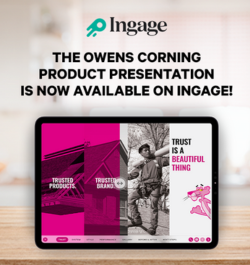








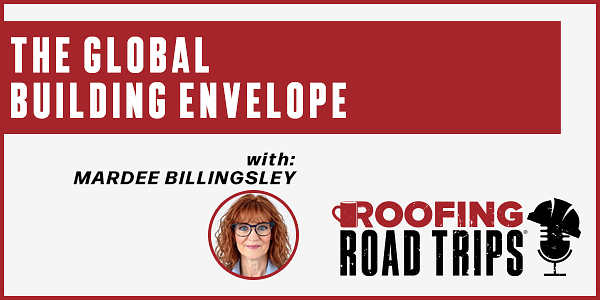
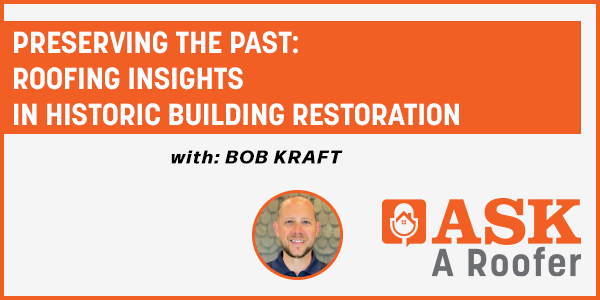

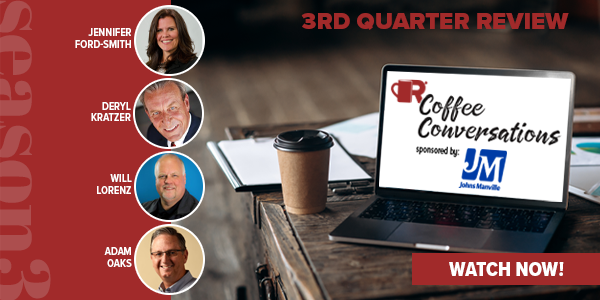



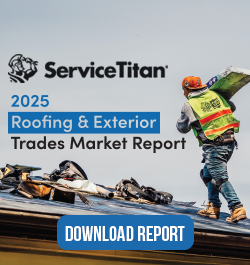
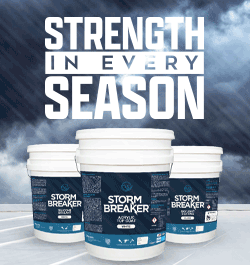

Comments
Leave a Reply
Have an account? Login to leave a comment!
Sign In